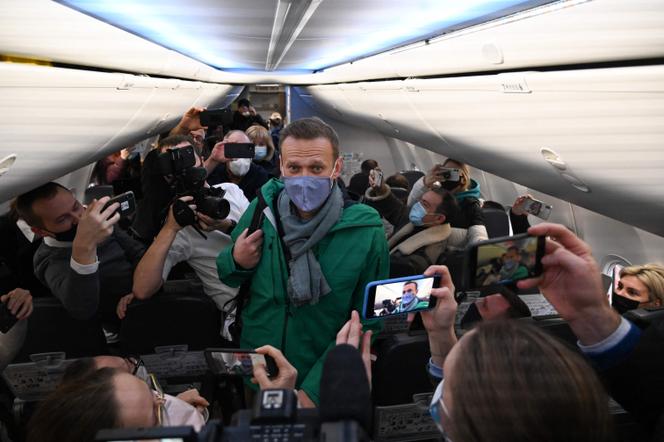


Russian opposition leader Alexei Navalny died at the Arctic prison colony where he was serving a 19-year term, according to a statement by Russia's federal penitentiary service, on Friday, February 16.
He was for years the most prolific critic of President Vladimir Putin and his policies, returning to Russia after recovering from a near-fatal poisoning attack in 2020, which his supporters say was orchestrated by the Kremlin. He was immediately imprisoned on his arrival, and on Friday could not be revived by medics when he lost consciousness after going for a walk, the prison service said.
Immediately, government leaders around the world and Russian opposition figures reacted to his death, issuing public statements and condolences.
Ukrainian presidential aide Andriy Yermak said Putin "cannot be trusted," in comments after the announcement of Navalny's death in jail: "Putin is the ultimate evil who is afraid of any competition. The lives of Russians are nothing to him," Yermak wrote on Telegram, adding "everyone who calls for negotiations must realise that he cannot be trusted. The only language he understands is force."
The European Union it held President Putin's Russia responsible for Navalny's death in prison: "Alexei Navalny fought for the values of freedom and democracy. For his ideals, he made the ultimate sacrifice," European Council President Charles Michel posted on X. "The EU holds the Russian regime for sole responsible for this tragic death."
France said that Navalny had paid a harsh toll for resisting "oppression" under Putin: "Alexei Navalny paid with his life for his resistance to a system of oppression," French Foreign Minister Stéphane Séjourné said on X. "His death at a penal colony reminds us of the reality of Vladimir Putin's regime," Séjourné said, expressing condolences to Navalny's family and the Russian people.
The death of Navalny is "terrible news" and a "huge tragedy" for the people of Russia, British Prime Minister Rishi Sunak said: "As the fiercest advocate for Russian democracy, Alexei Navalny demonstrated incredible courage throughout his life," Sunak said on X, adding that his "thoughts are with his wife and the people of Russia."
Germany's Chancellor Olaf Scholz condemned Navalny's death in prison: Scholz recalled occasions when he had spoken with Navalny about the "great courage" that prompted him to return to Russia after recovering in Berlin from a poisoning attack. "He has now paid for this courage with his life," said Scholz.
Latvian President Edgars Rinkevics said that Navalny's death reflected "the true nature of Russia's current regime" after Moscow announced his passing: "He was just brutally murdered by the Kremlin. That's a fact and that is something one should know about the true nature of Russia's current regime," Rinkevics said on X. The leader of the Baltic country also offered condolences to Navalny's family and friends.
Moscow bore responsibility over Navalny's death at an Arctic prison colony, Norway's foreign minister said: "The Russian government bears a heavy responsibility," Foreign Minister Espen Barth Eide wrote on X, adding that he was "deeply saddened by the news."
